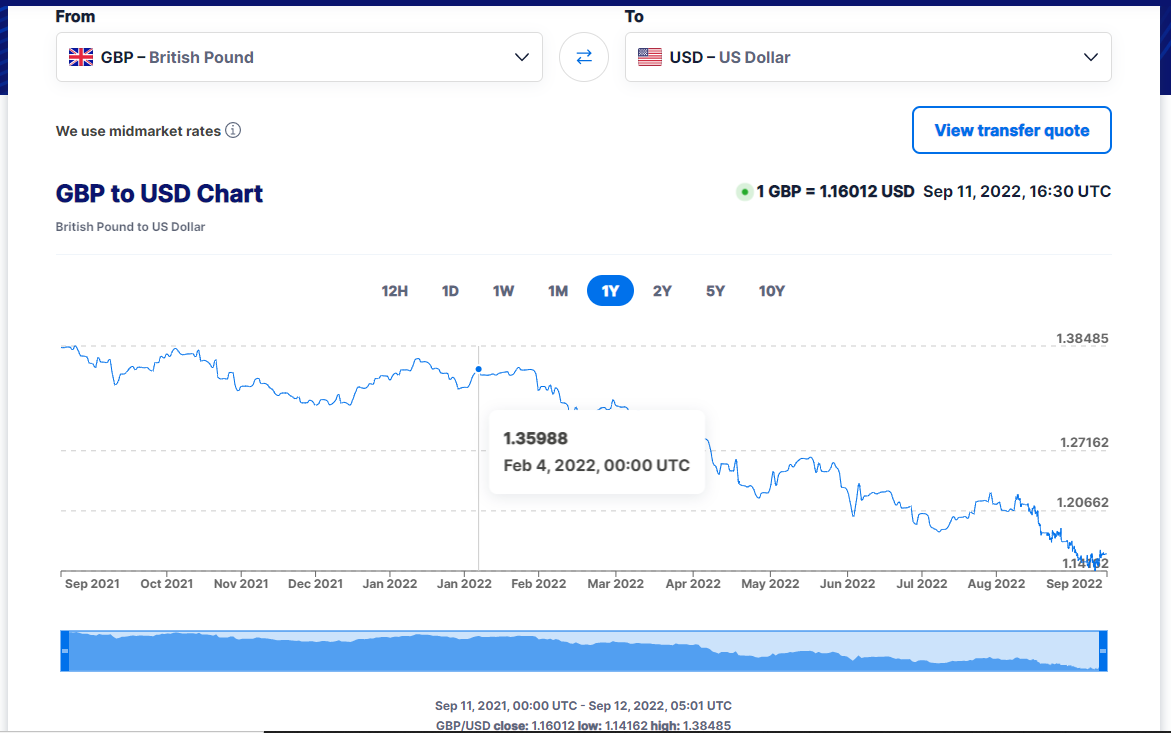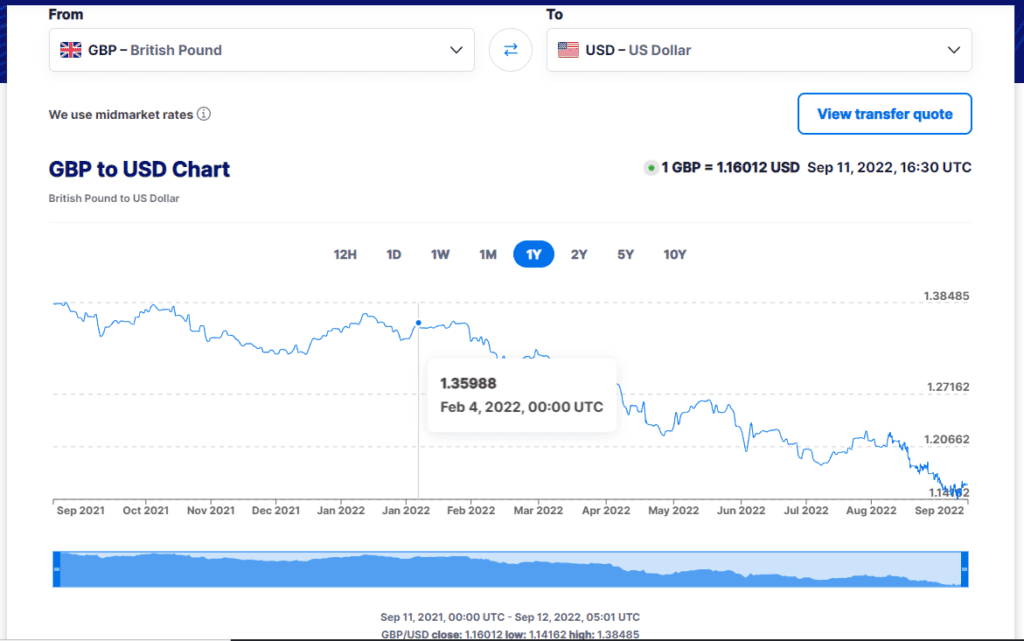
Historical Chart GBP Vs US$
British Pound – Why is it so Weak? The pound has fallen to almost a 40-year low versus the dollar, dropping below pandemic levels as investors panic over the UK’s energy situation and economic outlook.
British Pound – So Weak
Investors wager that if the economy experiences a recession later this year, the Bank of England will be forced to halt rising interest rates, which devalues the pound. If the next administration announces modest expenditure initiatives to help households with their energy bills this winter, anticipate the pound to fall further on the premise that a prolonged recession cannot be avoided. Source: Sunday Times
The British pound hit a 37-year low versus the US dollar as the UK struggled to find solutions to a number of interrelated economic issues.
The pound has fallen over the past year due to an impending recession, a terrible energy shortage, and the highest inflation rate among G7 countries. When the Covid epidemic exploded into the world arena, it fell below its March 2020 low.
Compared to the US dollar, the currency dropped to its lowest point since 1985, when Margaret Thatcher was the prime minister. Source: CNN
The Pound dropped to $ 1.1406 last week. The last time the value of the pound reached $1.14 was briefly in March 2020 and that was the 2016 Brexit outcome. The price has not reached $1.1407 Since 1985, during Margaret Thatcher’s administration.
New Prime Minister Liz Truss on the Economy

As the fourth prime minister of the United Kingdom since the Brexit decision in 2016, Liz Truss is already working her first full day in the position and is already facing the prospect of a possible currency crisis. As the cost of living rises this winter, Truss is allegedly mulling a £150 billion pledge to limit rising energy prices that threaten to force millions of Britons into poverty.
She hasn’t yet stated how the nation intends to pay for the rescue, though. Truss, who ran on a platform of tax cuts, declared on Wednesday that she is opposed to a windfall tax on energy firms that have made record profits as a result of the recent spike in gasoline prices.
Effects of the falling Pound

Inews UK discusses the consequences as follows,
A depreciating pound raises the cost of imports like food.
Additionally, it increases the cost of gasoline at the pump and reduces the worth of British citizens’ foreign purchases.
Because the UK imports more than it exports, investment management firm Brewin Dolphin claims that a weak pound tends to drive up inflation.
“Both businesses and consumers will pay more for items as the pound declines in value. Anyone living on a fixed income, such as many elderly, or employees who haven’t received a salary raise in a while, will be hit particularly hard because inflation reduces their income’s purchasing power, leaving them in effect poorer, it said.
Falling sterling can, however, be advantageous for businesses whose income is heavily reliant on overseas trade. If those foreign earnings are converted back into sterling at a lower rate, they will buy more pounds.
Read more stories on this site:
Which is the Top Streaming Service in 2022
Cineworld World’s Second Largest Theater-Operator, Files for Bankruptcy
shop nowUp To $40 Off Sitewide With Code: Summer40!



